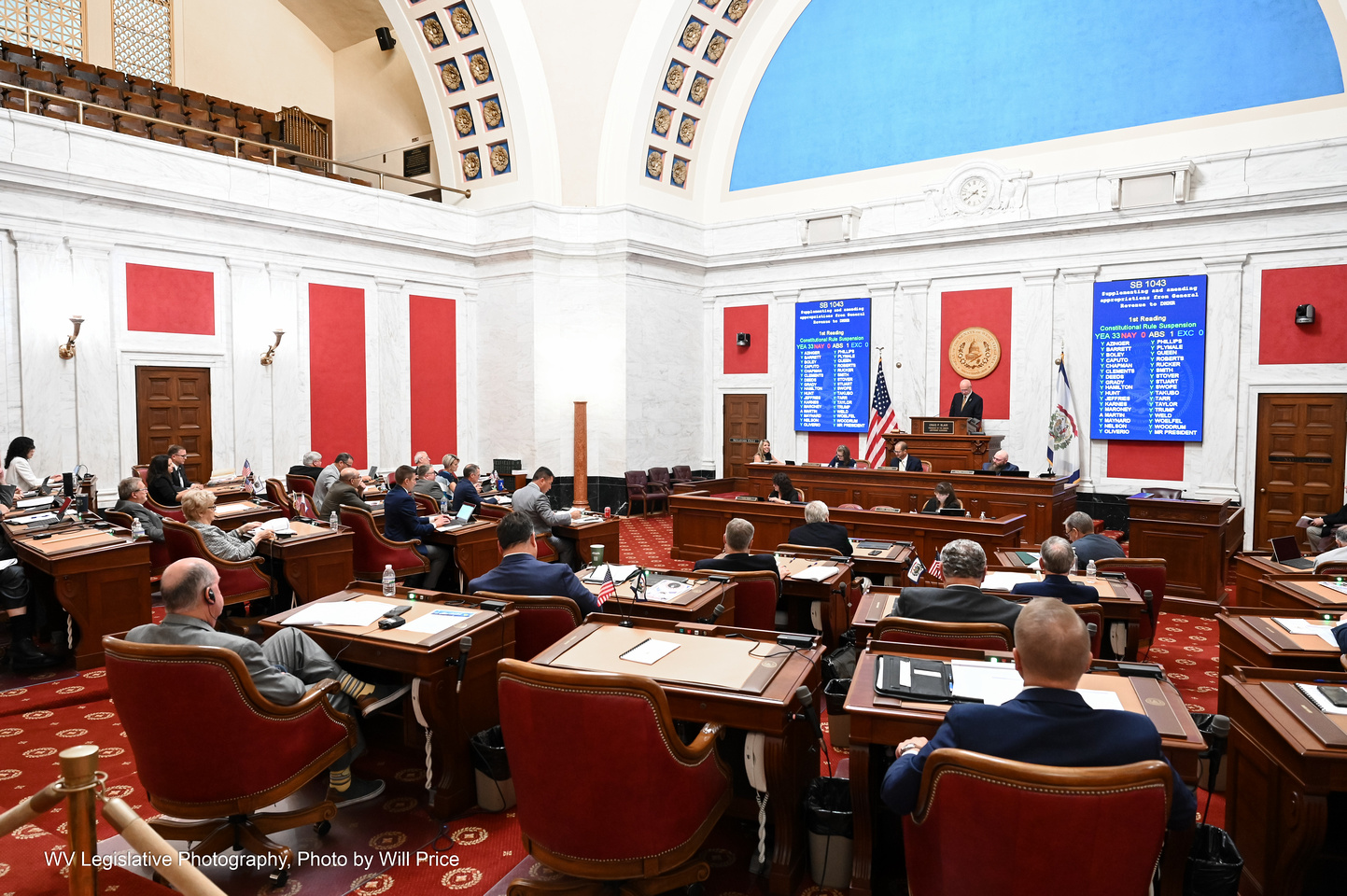Gov. Jim Justice called the legislature into special session Sunday afternoon to address the state’s corrections employment crisis, to help fund first responders and to clarify the vehicle tax rebate.
Forty-four bills were introduced in each chamber, many were pushed into immediate passage, others will still have readings and committee debate.
Legislators have said fixing the state’s corrections crisis is not just about money. And when it does come to money, they say it’s not just about a one-time funding fix.
Information from the West Virginia Department of Corrections and Rehabilitation shows there are still more than a thousand open jobs overall. The vacancy rate for corrections officers alone is more than 33 percent.
Several corrections bills were proposed on the governor’s call, creating Critical Need Pay to help fill the most needed positions, restructuring the Correctional Officer position scale to encourage workers to remain as officers instead of moving to administrative roles, and providing needed raises for current officers to fill crucial vacancies. The final say is yet to come on most of those proposals.
House Bill 114 was passed by the House. Del. Matthew Rohrbach, R-Cabell, explained the measure will make sure $71 million is properly allocated for PEIA use.
“According to PEIA, it is unable to use the money in the PEIA subsidy account for the intended purpose,” Rohrbach said. “This supplemental works to transfer the funds in the PEIA subsidy account to cover increased employer contributions incurred by the county boards of education.”
The call has a bill proposing $12 million in one-time supplemental appropriations that will provide much-needed funding to local fire departments. Justice said he will call all parties together after the session to find a long-term fix.
More than 200 fire depts and EMS organizations authored a letter to Justice asking lawmakers to fund and stabilize local services.
Justice is proposing $150 million for highway maintenance and equipment, bringing the total since 2017 to more than $2 billion of state dollars invested in West Virginia’s road system along with $4 million to the West Virginia Division of Forestry for wildfire firefighting equipment and $45 million to Marshall University for the expansion of their cybersecurity program.
Both chambers passed the bill clarifying that certain personal property tax payments on vehicles paid prior to the effective date of the tax credits created in House Bill 2526 during the 2023 Regular Session are eligible for the full tax credit.
Summersville Lake in Nicholas County could become a state park if another item passes, officially designating 177 acres as Summersville Lake State Park. It would be the state’s first new park added in more than 30 years. The House passed the bill, and the Senate is still considering it. Del. Gary Howell, R-Mineral, explained the park comes with a partnership.
“No funds are needed to be appropriated for this project as it is being funded by last year surplus appropriation,” Howell said. “The site will be developed through a private public partnership. So annual operation costs are not expected.”
After at least one reading through each of the proposed bills, both the House and Senate recessed until noon Monday.
